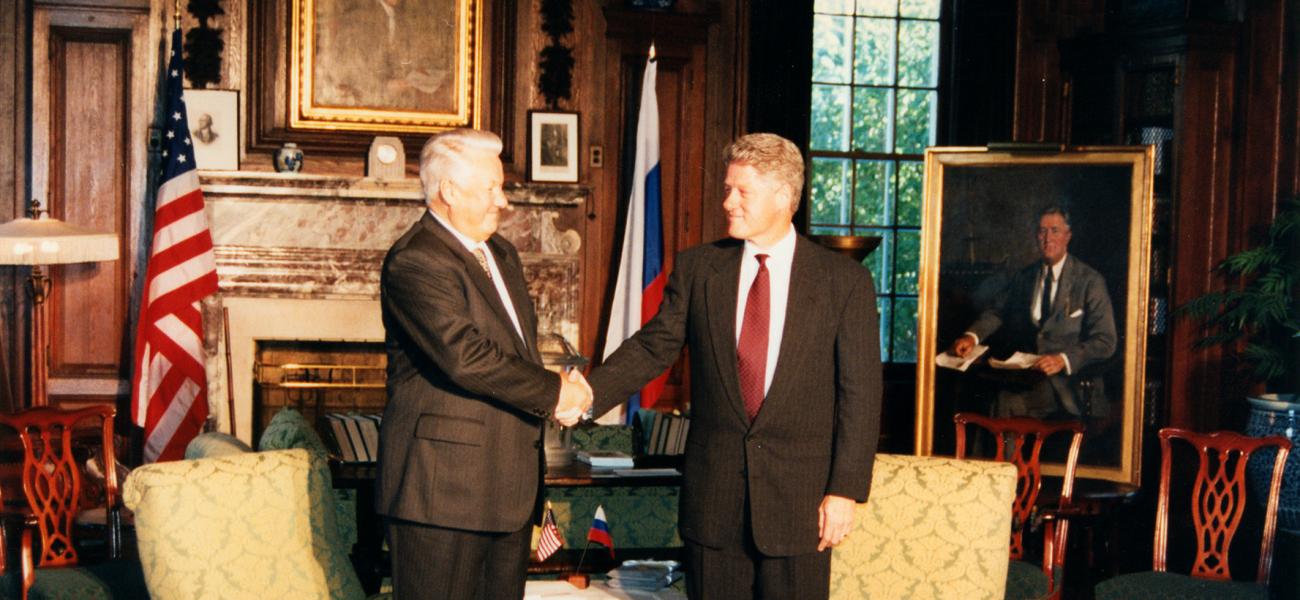
How to Interfere in a Foreign Election
This is a summary of an article originally published by The Boston Globe.
The author writes that in 1996, U.S. President Bill Clinton decided that U.S. interests would be best served by re-electing Boris Yeltsin to the Russian presidency. Despite the Russian president's unpopularity, Washington saw Yeltsin as easy to control, and so, U.S. resources, private and public, "were thrown behind a Russian presidential candidate." American political consultants relocated to Moscow and devised a campaign to stoke Russian citizens' fears of civil unrest. "When they saw a CNN report from Moscow saying that voters were gravitating toward Yeltsin because they feared unrest, one of the consultants shouted in triumph: 'It worked!'" While Western media declared Yeltsin's victory in the election a victory for Russia, the author argues that it was quite the opposite: "a victory by a foreign power that wanted to place its candidate in the Russian presidency." 1996 marked the first instance of "direct interference in a presidential election in U.S-Russia relations." When Yeltsin unexpectedly resigned three years later, he named as his successor one Vladimir Putin. Had the U.S. not interfered in 1996, the author contends that Washington would likely not "be dealing with Putin today."
Read the full article at The Boston Globe.
Stephen Kinzer
Stephen Kinzer is a senior fellow at Brown University’s Watson Institute for International and Public Affairs.
Photo from the FDR Presidential Library & Museum shared under a CC BY 2.0 license.

